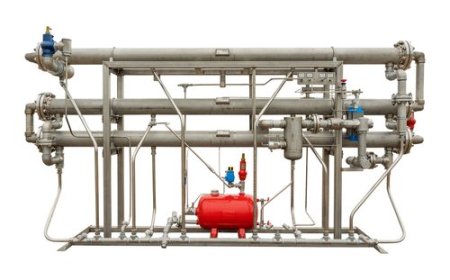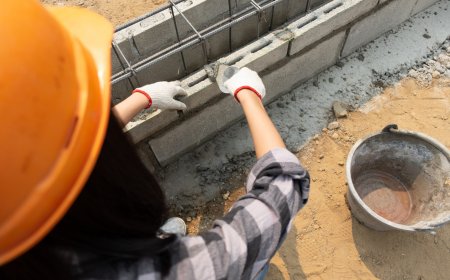What Size HVAC System Do I Need? A Simple Guide for Homeowners

Choosing the right size HVAC system is one of the most important decisions youll make as a homeowner. Too big, and you'll waste energy and money. Too small, and your home won't stay comfortable. But how do you figure out theright size?
Whether you're replacing an old unit or doing a brand-new HVAC installation, this guide will walk you through everything you need to know in simple terms no technical jargon, no fluff.
Lets make sure you stay cool in the summer, warm in the winter, and never overpay for the wrong system.
Why HVAC Size Matters More Than You Think
Installing an HVAC system thats too large or too small can cause a lot of issues not just with comfort, but also with your wallet.
An oversized HVAC unit will cycle on and off more frequently, leading to:
-
Higher energy bills
-
Uneven temperatures
-
More wear and tear on parts
An undersized HVAC unit, on the other hand, will run constantly trying to keep up, which means:
-
Poor temperature control
-
Shorter lifespan
-
Increased maintenance costs
In both cases, you'll be left paying more whether in energy bills or repairs than if you had the correctly sized system from the start.
How HVAC Size is Measured: Understanding "Tons"
HVAC systems are typically measured in tons but not like the weight of a car. In HVAC terms, a ton refers to how much cooling capacity the system has. One ton equals 12,000 BTUs (British Thermal Units) per hour.
Heres a quick example:
-
A 1.5-ton unit = 18,000 BTUs
-
A 3-ton unit = 36,000 BTUs
Most homes need between 1.5 and 5 tons, but it depends on several factors. Thats where a professional HVAC installation specialist comes in.
Factors That Determine the Right HVAC Size
So, how do you know what size is right for your home? Its not just about square footage. A real HVAC calculation considers a range of factors:
1. Square Footage
This is the starting point. On average:
-
1 ton cools about 400600 square feet
-
2,000 sq. ft. home might need 3.55 tons
But thats just the beginning.
2. Insulation Quality
A well-insulated home keeps temperature in meaning you may need a smaller system. Poor insulation? Youll need more power to stay comfortable.
3. Window Size & Sun Exposure
Lots of windows or south-facing rooms can raise indoor temps quickly, especially in summer. That adds to your cooling load.
4. Ceiling Height
Homes with high ceilings have more air volume to cool or heat. The taller your space, the more powerful your system needs to be.
5. Climate Zone
Someone in Texas will need a different system than someone in Minnesota. Your local climate plays a huge role.
Want a shortcut? Use an online HVAC size calculator for an estimate but always have a pro do a Manual J Load Calculation for accuracy.
DIY Sizing vs. Professional Help
You might be tempted to guess your HVAC size or rely on your old systems specs. But that can backfire. A proper HVAC installation should always begin with a full load analysis done by a licensed technician.
At Rushing Heating & AC, we perform precise calculations to make sure you get a system thats tailor-fit to your home and needs. No more guessing. No more overpaying.
What Happens If You Choose the Wrong Size?
Heres what could go wrong with the wrong-sized system:
-
Too Big: Short cycles, noisy operation, higher humidity, wasted energy
-
Too Small: Constant running, uneven temperatures, shorter system life
Bottom line? Your comfort and your energy bill are on the line. Thats why its crucial to get HVAC installation right the first time.
Energy Efficiency: Size Isnt Everything
Even the perfectly sized system wont perform well if its not efficient. Look for:
-
SEER Rating (Seasonal Energy Efficiency Ratio) Higher is better (aim for 16+)
-
ENERGY STAR Certified Units
-
Proper Ductwork Even a great system wont help if your ducts are leaking
Efficiency and size go hand in hand. A professional will help you balance both.
Ready to Get the Right Size HVAC System?
Before you invest in your next HVAC unit, take the time to get it sized correctly. A bit of planning now can save you thousands of dollars over the life of your system.
If you're in the market for HVAC installation, make sure you partner with an expert who understands not just equipment but your specific home.
Want expert advice? The team at Rushing Heating & AC is here to help you get it right from the start. Were committed to making homes comfortable, energy-efficient, and hassle-free all year round.
FAQs: What Homeowners Ask Before Sizing an HVAC System
1. Can I just buy the same size unit I had before?
Not necessarily. Your home may have changed, or the previous system could have been incorrectly sized. Always get a professional evaluation.
2. Whats the most common size HVAC for a 2,000 sq. ft. home?
Typically 3.55 tons, but this depends on insulation, climate, and ceiling height. Dont rely on averages alone.
3. Does a bigger system cool my home faster?
It might, but thats not a good thing. It will short-cycle, leading to humidity issues and inefficient operation.
4. Is ductless HVAC a good alternative?
Yes, especially for smaller homes, renovations, or areas without ductwork. Sizing still matters though, even with ductless systems.
5. How much does HVAC sizing cost?
The load calculation is often included in a HVAC installation quote. Some contractors offer it as a standalone service. It's a small investment with huge long-term savings.
Final Thoughts
Getting the size of your HVAC system right is not just about comfort its about protecting your energy bills, your home, and your peace of mind.
Instead of guessing, rely on licensed professionals who specialize in HVAC installation and understand the unique requirements of your home. With expert help, you'll stay cozy, efficient, and confident in your investment.












































